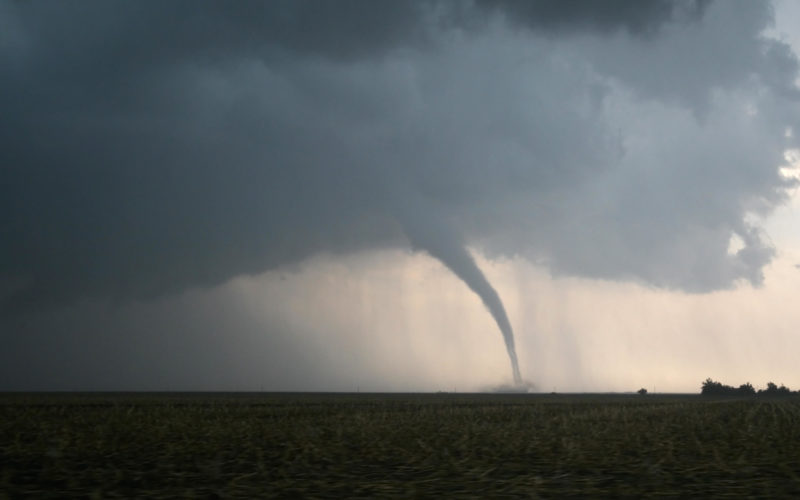Be Alert During Severe Weather
Arkansas is no stranger to bad weather. In 2017, the state had 36 tornados. In April of this year, we had 11 tornados in one weekend. 2014 was a particularly brutal tornado season that resulted in 17 fatalities, nearly 200 documented injuries, and millions of dollars in property damage. In Arkansas, tornados usually occur during spring and early summer, although they can occur at any time of the year.
In 2017, the state had 36 tornados. In April of this year, we had 11 tornados in one weekend.
There isn’t much you can do to avoid property damage if your home is directly in a storm path, but sheltering in a safe place as soon as weather experts are able to predict a storm is key to preventing injuries and fatalities. However, sometimes, when the weather turns dangerous, it seems nearly impossible to find the information you need to stay safe. And when you do get notifications, they can be confusing. What is a “watch” versus a “warning,” and what notifications should you and your family sign up for, to make sure that you have as much time as possible to find protection from the storm?
Okay, let’s talk terminology:
A tornado watch means conditions are favorable for producing a tornado, so make sure you’re prepared to get to safety quickly. If you’re outdoors or in a car or mobile home, try to find a sturdy shelter to ride out the storm. Make sure your safe space is well-supplied (we’ll talk about these in Part 3 of our Tornado Safety series), and pay attention to your various alerts and information channels, to make sure you keep ahead of dangerous changes. It’s a good idea to go ahead and move irreplaceable valuables, such as external hard drives or photo albums, to your storm shelter. If you have pets in cages, this is a good time to move them to the shelter as well.
A tornado warning means a tornado has been spotted or indicated by radar. Move to a basement, storm shelter, or interior room on a bottom floor immediately. Avoid windows if possible, cover yourself with blankets and pillows, and stay put until the warning has passed.
How do I stay informed about dangerous storms and potential tornados?
- Text Alerts
First, you should sign up to receive statewide inclement weather alerts by text. However, some cities and counties (such as Fayetteville, Faulkner County, Benton County, Saline County, Washington County, Pope County, Jacksonville, Springdale and Hot Springs) also send their own alert texts, and these can be more specific and relevant to your particular location.Your best bet is to google your city or county and “weather alert” or search your city government’s page for a link to sign up. Most colleges also have text alert systems for their students and staff, in the case of bad weather and other dangerous events. - Special Alerts
Non-governmental sources that send geographic-specific weather alerts include Accuweather and Weather Radios, which specializes in alerts for deaf and hard-of-hearing persons. The National Weather Service has an extensive list of both free and subscription weather alert services. - Apps
You can also download Weather Channel Apps to get alerts to your phone, iPad, smart watches, and other personal devices.
Text alerts are more useful than sirens, since sirens don’t distinguish between watches and warnings and depending on where you are, you may not be able to hear the sirens. However, most of the time that you hear a siren that isn’t coming from an emergency vehicle, in Arkansas it means a tornado may be coming, and it’s time to take shelter.
Online, Radio and TV
The city of Little Rock lets you listen to the different emergency siren tones online, so that you’ll know the difference between a tornado alert and an evacuation alert (due to fire, flooding, etc.)
You can also tune your radio and TV to local channels, since they generally keep their audience informed about dangerous weather conditions. Or find out what the NOAA (National Oceanic and Atmospheric Administration) hazards radio station is in you area, since it broadcasts weather information 24 hours a day.
Trust Your Senses
Alerts are a fantastic way to know what the experts think is happening, weather-wise, but you should also use logic and trust your senses. If you see or hear something that indicates a tornado, take shelter. Don’t wait for a warning system to notify you of what you see outside your window.
If you see or hear something that indicates a tornado, take shelter. Don’t wait for a warning system to notify you of what you see outside your window.
Some things to watch for include a greenish or yellowish sky, a wall of clouds or a large funnel cloud, hail without rain, unnaturally still air, an approaching cloud of debris, and a loud roar that sounds like a freight train. If you see a cloud of debris or a funnel, or you hear the “train,” go to a safe space immediately.
Make sure your property is fully covered in the event of a tornado or other increment weather event. Get in touch with one of our agents today.
Sources:
https://www.weather.gov/safety/tornado-ww
https://www.emsaonline.com/mediacenter/articles/00000184.html

